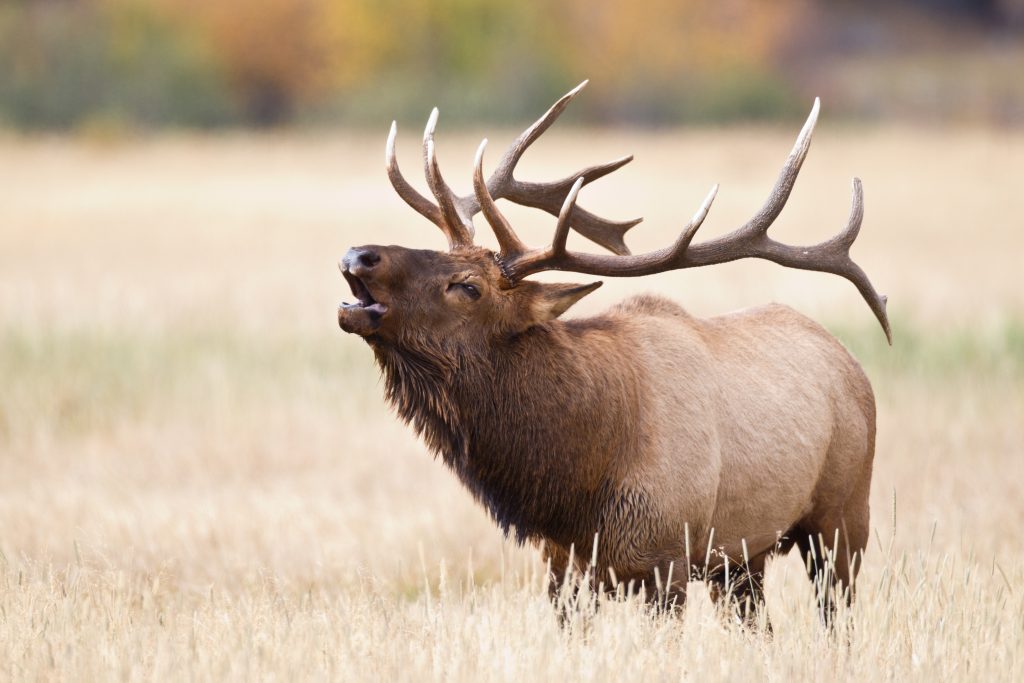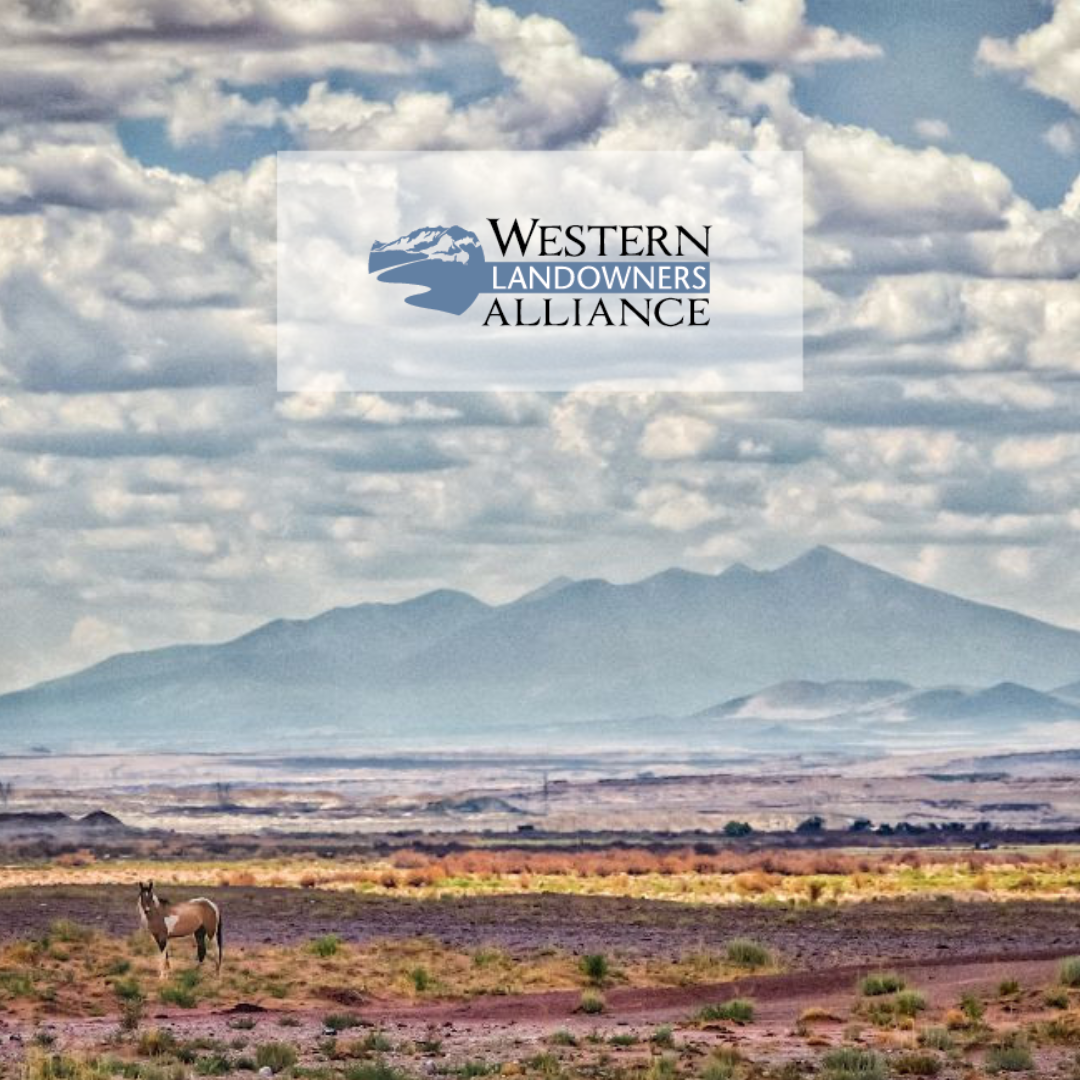Western Digest – October 2018
News and opportunities on working lands, water and wildlife

Photo: RPBirdman
Whether you are harvesting, shipping, hunting, hiking or otherwise, we hope that the cool fall weather finds you well and with time to be out on the land. Articles in this issue range from water rights for restoration to keeping rangelands greener and from the economic and ecological benefits of public grazing access to a Colorado River drought agreement. Enjoy!
As always, this member monthly includes pertinent working lands, water and wildlife news and opportunities from around the West. If you have any information, resources or events that you think would be valuable for this digest, or have questions or comments, please send me an email. I’d love to hear from you.
Hallie Mahowald
Stewardship Services Director
Working Lands Economics
- Water Rights for Restoration: The latest article in WLA’s conservation finance blog series by WRA, Inc. focuses on water rights for restoration including what a water right is, how water rights can be used for stream restoration, how landowners can lease/sell their rights, what a landowner can expect to paid, what risks to be aware of and more: Western Landowners Alliance.
- MOU Scales Up Sagebrush Conservation: Several partners signed a landmark agreement to leverage conservation dollars across state, federal and private property in Nevada: Sage Grouse Initiative.
- Farm Conservation Practices are Profitable: While conservation-oriented farmers spent some money that conventional farmers didn’t—most notably on cover crop seed and herbicides—they saw savings in the form of fertilizer costs, labor, equipment and fuel costs. Farmers using conservation practices also saw an increase in yields in good years and less yield loss in bad weather years: Civil Eats.
Forest & Range
- Keep Rangelands Greener: New “Science to Solutions” describes how low-tech restoration methods used at different sites around the West increased vegetation productivity by 25% and kept plants greener longer into the year by restoring soil moisture: Sage Grouse Initiative.
- Ranching for Results, Not Regulations: Over 20 years ago, Agee Smith of Cottonwood Ranch in Nevada, got together with a group of neighbor ranchers and started working differently, including using holistic resource management to balance livestock grazing with increasing native plants and wildlife habitat. Now, Smith says his operation depends on it: USFWS.
- Benefits of Regenerative Ag: TomKat Ranch is currently producing a series of case studies showing the benefits of regenerative practices on working lands. Check out two recent articles highlighting WLA members Flying Diamond Ranch and Elk Glade Ranch.
- Grazing as Fire Tool: Rangeland scientists in southeastern Oregon for years produced studies showing earlier grazing reduces future fire risk while benefiting native plants. Now they are working to figure out how to apply these lessons on the larger scale that the vast sagebrush steppe landscape often demands: Western Innovator.
- Rotational Grazing: Lance Vilhauer is surprised by the number of different grasses and wildflowers that have shown up since he converted from a season-long grazing system to a twice-over rotational grazing system: DakotaFarmer.
- Pathways Forward: The Network for Landscape Conservation published a new report on the current state–and future direction–of landscape conservation: Network for Landscape Conservation.
Water
- CO River Drought Agreement: Seven Southwestern states that depend on the overtaxed Colorado River have reached landmark agreements on how to manage the waterway amid an unprecedented drought, including a commitment by California to bear part of the burden before it is legally required to do so. The agreements are tentative and must be approved by multiple states and agencies as well as the U.S. government: AP News.
- Soil Water Primer: A new publication from Wyoming Extension offers insight on a range of topics surrounding soil and water: Western Farmer-Stockman.
- Rio Grande Ruling Challenged: Environmentalists are challenging a court ruling over whether water from the Rio Grande is properly accounted for and being used in beneficial ways as it flows through New Mexico’s most populated region: The State.
- Fire and Water: Intense and repeated wildfires can damage the ecology of waterways by exposing them to the sun’s heat, exacerbating flooding and erosion along denuded hillsides, and releasing toxins such as mercury that are often liberated from soil and tree trunks: Yale Environment 360.
Wildlife
- Public Grazing and Wildlife: New research shows grazing access to public lands in the West can improve the economic health of ranches and their ability to maintain habitat for iconic wildlife, like the greater sage grouse: Sage Grouse Initiative.
- A Fence Runs Through It: A new study published in Biological Conservation examines the influence that fences have on wildlife and ecosystems and calls on scientists and conservationists to study fence impacts at broad-scales: ScienceDirect.
- States Role in Species Conservation: States need to play a larger role in protecting and recovering endangered species, the chairman of the Environment and Public Works Committee said at a hearing recently that looked at federal, state and local efforts to collaborate on wildlife conservation: Agri-Pulse.
- Gunnison Sage Grouse: A federal judge has ruled that the Fish and Wildlife Service complied with federal law and did not err in its decision four years ago to list the Gunnison sage grouse as threatened under the Endangered Species Act: E&E News.
Policy
- 2014 Farm Bill Expires: What’s next? After more than a year of work by those most interested in passing an on-time Farm Bill – farmers, ranchers and advocacy groups interested in sustainable agriculture, conservation and forestry – the 2014 Farm Bill expired on September 30, 2018. WLA’s policy director, Jessica Crowder, explains what this means to landowners and what’s next: Western Landowners Alliance.
- USDA 2501 Program: USDA announced that it will issue $9.4 million in grants to provide enhanced training, outreach and technical assistance to underserved and veteran farmers and ranchers. This funding is available through the USDA’s Outreach and Assistance for Socially Disadvantaged Farmers and Ranchers and Veteran Farmers and Ranchers Program (the 2501 Program): USDA.
- WOTUS 2019: The Environmental Protection Agency says it is on track to issue a final rule replacing the Obama administration’s 2015 “waters of the United States” rule by September 2019: Agri-Pulse.
Tools & Resources
- Rangeland Analysis Platform (RAP) is a free, easy-to-use, online mapping app that allows users to quickly compare trends in rangeland vegetation over time at a ranch, county or watershed scale: Watch demo.
- Regenerative Ag Book: Gabe Brown has a new book “Dirt to Soil: One Family’s Journey into Regenerative Agriculture” which tells Brown’s story of how he turned around 4 disastrous years and rebuilt the farm using regenerative agriculture: Western Farmer-Stockman.
- The Sun: A new book by Courtney White, former Executive Director of the Quivira Coalition, is a mystery set on a ranch in Northern New Mexico. Read the first chapter and stop by to say hi to Courtney at the 2018 Regenerate Conference (details in events below) where he will be signing copies. The book is for sale on Amazon.com.
Opportunities
Funding
- ACEP due Nov 2: The Agricultural Conservation Easement Program (ACEP) provides financial and technical assistance to help conserve agricultural lands and wetlands and their related benefits. Sign-up is continuous and application dates vary from state to state, but many are due on November 2, 2018, for 2019 funding consideration.
- RCPP due Nov 16: The Regional Conservation Partnership Program (RCPP) promotes coordination between NRCS and its partners to deliver conservation assistance to producers and landowners. NRCS provides assistance to producers through partnership agreements and through program contracts or easement agreements. Application dates vary from state to state, but many are due on November 16, 2018.
- Hurricane and Wildfire Assistance: Agricultural producers affected by hurricanes and wildfires in 2017 now may apply for assistance to help recover and rebuild their farming operations. Signup begins July 16, 2018, and continues through November 16, 2018: USDA.
- NFWF Improving Habitat Quality: The National Fish and Wildlife Foundation (NFWF) is soliciting proposals from projects that enhance and improve the quality of state identified, priority big-game winter range, stopover areas and migration corridors on federal land and/or voluntary efforts on private land. Up to $2.7 million is available in funding. Full proposals are due January 10, 2019: NFWF.
Employment
- WLA Colorado Field Organizer: Western Landowners Alliance is seeking a Colorado field organizer to work with landowners, partner organizations and public agencies to help advance WLA’s mission and improve the health of Colorado’s working lands through educational outreach, resource coordination and public policy engagement: Western Landowners Alliance.
- 2019 New Agrarian Apprenticeships: The Quivira Coalition is now accepting applications for their 2019 New Agrarian Apprenticeship program. Applications are due December 1, 2018:Quivira Coalition.
Other
- Public Comment on Soil Health: USDA recently released for public comment a set of standard indicators and associated laboratory procedures to assess soil health. The Federal Register Notice is live and the comments will be accepted until December 13, 2018: USDA NRCS.
- Mad Farmer: Check out the Mad Farmer project, a series of character-driven video portraits of mad farmers and ranchers – people who are implementing innovative climate-forward solutions on their land, stories told by the farmers themselves: Mad Farmer.
Events & Webinars
- October 30 – November 2: 2018 Regenerate Conference hosted by Quivira Coalition, Holistic Management International, and American Grassfed Association in Albuquerque, New Mexico.
- November 6-8: Colorado Section Society for Range Management Workshop at the Wine Country Inn in Palisade, Colorado.
- November 28: Altar Valley Conservation Alliance Annual Winter Fire Meeting in Tucson, Arizona.
- November 29 – December 1: 2018 Rocky Mountain Citizen Science Conference at the Buffalo Bill Center of the West in Cody, Wyoming.
- December 2-5: 7th National Grazing Lands Conference in Reno, Nevada. Agenda and registration information are now available.
- December 5-6: Regenerative Earth Summit: Food + Fiber + Climate in Boulder, Colorado.
- December 10-14: 15th International Wildland Fire Safety Summit and 5th Human Dimensions of Wildland Fire Conference in Asheville, North Carolina.
- December 12: Soil Revolution Conference in Boulder, Colorado. Bringing together farmers, ranchers, policy makers, ag professionals and landowners from across the Front Range and beyond to discuss soil health and resiliency at the farm and ranch level.
- January 28-30, 2019: Rural Voices for Conservation Coalition (RVCC) Annual Meeting in Santa Fe, New Mexico including a shared day with WLA focused on collaboration to increase the health and resilience of public and private lands and rural communities.
- February 5-7: RiversEdge West’s 2019 Riparian Restoration Conference in Phoenix, Arizona.
- April 29 – May 3, 2019: 6th International Fire Behavior and Fuels Conference in Albuquerque, New Mexico. The conference theme is “Fuels of Today–Fire Behavior of Tomorrow,” and will be held simultaneously in Albuquerque, Sydney (Australia) and Marseille (France).
Membership
The Western Landowners Alliance advances policies and practices that sustain working lands, connected landscapes and native species.
Not yet a member? We invite you to Join Us.
Join WLA to stay up to date on the most important news and policy for land stewards.
Become a member for free today and we will send you the news and policy developments critical to the economic and ecological health of working lands.
WLA works on behalf of landowners and practitioners throughout the West. We will never share your contact information with anyone.

